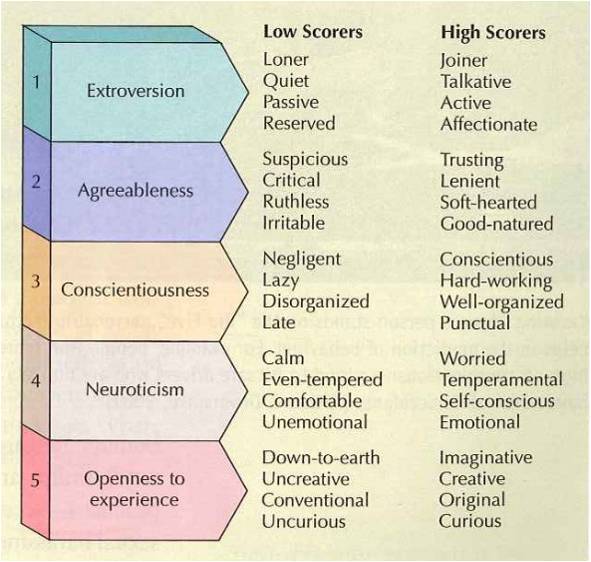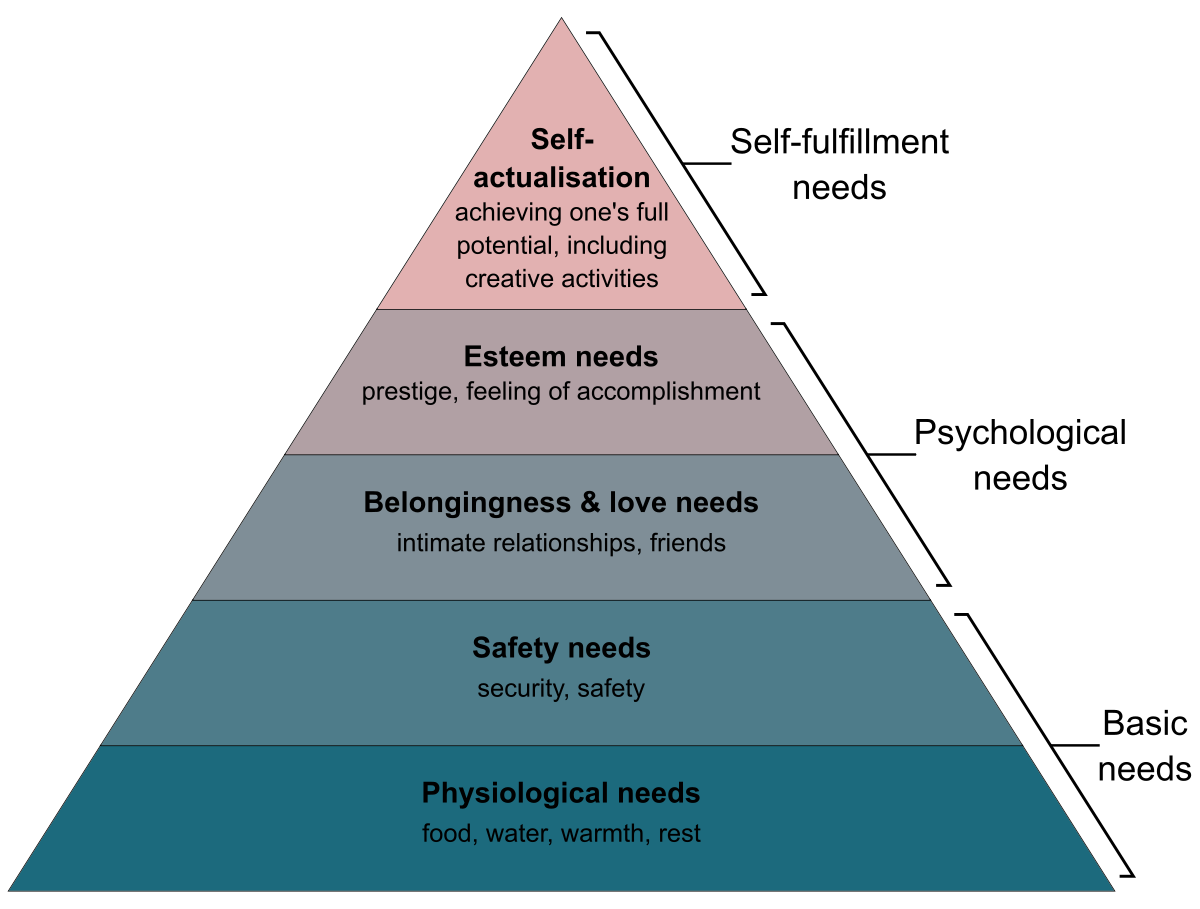Browse By Unit
Dalia Savy
John Mohl
Mary Valdez
Dalia Savy
John Mohl
Mary Valdez
Research Methods Used to Investigate Personality
We went over these in unit 1, but they keep coming back since they are used to investigate everything!
Case Studies were Freud’s main source of his personality theories. He was able to study his individual patients on a case by case basis and note their differences. He was very determined to form universal truths regarding personality.
Surveys are very broad and are good to use when you want a lot of information from a large sample size. However, many surveys come with bias because not everyone responds and people could easily lie.
Personality inventories are questionnaires in which people respond to a lot of different questions that target a wide range of feelings and behaviors. These are specifically used to assess selected personality traits 🧬
A key example of a personality inventory is the Minnesota Multiphasic Personality Inventory (MMPI), which is used for emotional disorders and screening purposes.
🤓 Psychologists to Know
Alfred Adler
A neo-Freudian that expanded on Freud's original psychodynamic theory with Karen Horney. They agreed that childhood was important, but social tension🗣️ (rather than sexual tension) is crucial for personality development.
Adler specifically spoke about how childhood feelings of inferiority can trigger our determination for superiority and have a strong effect on personality development. He focused more on ego than the unconscious.
Albert Bandura
His major contribution to personality was the key concept of reciprocal determinism, how a person’s personality can change based on the situation or people they are around.
Image Courtesy of Myers' AP Psychology Textbook 2nd Edition.
Paul Costa & Robert McCrae
They came up with the big 5 factor trait, a theory that there are 5 major factors (personality traits):
-
- 🧠Openness: open to new experiences, related to ones creativity, flexible thinking
-
- 📅Conscientiousness: dimensions of hard work, responsibility, and organization
-
- 💭Agreeableness: easy to get along with others, shows empathy
-
- 🗣️Extroversion: Outgoingness; a shy person would have low extraversion
-
- 😰Neuroticism: emotional stability; people with high neuroticism might be nervous, depressed, or anxious

- 😰Neuroticism: emotional stability; people with high neuroticism might be nervous, depressed, or anxious
Image Courtesy of Janaenahirney.
Sigmund Freud
Freud believed that one’s personality was essentially set in early childhood. As the child passes through 5 psychosexual stages, their personality develops. It's during these 5 stages that the 3 parts that make up our personality (the id (devil), ego (angel), and superego (referee)) are formed, as well.
- Oral: (birth to 1 year) pleasure is found in the mouth
- Anal: (1 to 3 years) control of bowel movements
- Phallic: (3 to 5 years) noticing the difference between being a boy and a girl (sex organs)
- Latent: (6 to puberty) repress sexual feelings and concentrate on social and academic skills
- Genital: (adulthood) guided by sexual gratification through relationships
Carl Jung
A neo-Freudian who took Freud's theory of personality and expanded on it. Jung believed that an individual's personal unconscious contains the painful or threatening memories and thoughts the person does not want to confront.
He contrasted the personal unconscious with the collective unconscious. This collective unconscious contains archetypes that Jung defined as universal concepts.
Abraham Maslow
Maslow is the humanistic psychologist that created the hierarchy of needs. He believes people are motivated to achieve self actualization by working their way up through this hierarchy 🔺

Image Courtesy of Wikipedia.
Humanists believe that a positive self-concept equals high self-esteem and when people achieve self actualization, their personalities change .
Carl Rogers
Rogers is another humanistic psychologist that believes free-will will lead to self actualization. As long as you have one person in your life that will give you unconditional positive regard, you can reach self actualization.
Acceptance is key (unconditional positive regard); however, humanists only look at the innate good and best in people, and ignore the negative. Self actualization equals a self accepting personality.
📝 Key Vocabulary
| Personality inventories | MMPI | Personality | Free association |
| Psychoanalysis | Unconscious | Id | Ego |
| Superego | Psychosexual Stages | Oedipus complex | Identification |
| Fixation | Defense Mechanisms | Self-serving bias | Narcissism |
| Individualism | Collectivism | Psychodynamic theories | Collective unconscious |
| Projective Tests | TAT | Inkblot tests | False consensus effect |
| Positive psychology | Spotlight effect | Self-esteem | Self-efficacy |
| Humanistic Theories | Self-actualization | Unconditional Positive Regard | Self-concept |
| Trait | Factor Analysis | The big 5 | Reciprocal Determinism |
<< Hide Menu
Dalia Savy
John Mohl
Mary Valdez
Dalia Savy
John Mohl
Mary Valdez
Research Methods Used to Investigate Personality
We went over these in unit 1, but they keep coming back since they are used to investigate everything!
Case Studies were Freud’s main source of his personality theories. He was able to study his individual patients on a case by case basis and note their differences. He was very determined to form universal truths regarding personality.
Surveys are very broad and are good to use when you want a lot of information from a large sample size. However, many surveys come with bias because not everyone responds and people could easily lie.
Personality inventories are questionnaires in which people respond to a lot of different questions that target a wide range of feelings and behaviors. These are specifically used to assess selected personality traits 🧬
A key example of a personality inventory is the Minnesota Multiphasic Personality Inventory (MMPI), which is used for emotional disorders and screening purposes.
🤓 Psychologists to Know
Alfred Adler
A neo-Freudian that expanded on Freud's original psychodynamic theory with Karen Horney. They agreed that childhood was important, but social tension🗣️ (rather than sexual tension) is crucial for personality development.
Adler specifically spoke about how childhood feelings of inferiority can trigger our determination for superiority and have a strong effect on personality development. He focused more on ego than the unconscious.
Albert Bandura
His major contribution to personality was the key concept of reciprocal determinism, how a person’s personality can change based on the situation or people they are around.
Image Courtesy of Myers' AP Psychology Textbook 2nd Edition.
Paul Costa & Robert McCrae
They came up with the big 5 factor trait, a theory that there are 5 major factors (personality traits):
-
- 🧠Openness: open to new experiences, related to ones creativity, flexible thinking
-
- 📅Conscientiousness: dimensions of hard work, responsibility, and organization
-
- 💭Agreeableness: easy to get along with others, shows empathy
-
- 🗣️Extroversion: Outgoingness; a shy person would have low extraversion
-
- 😰Neuroticism: emotional stability; people with high neuroticism might be nervous, depressed, or anxious

- 😰Neuroticism: emotional stability; people with high neuroticism might be nervous, depressed, or anxious
Image Courtesy of Janaenahirney.
Sigmund Freud
Freud believed that one’s personality was essentially set in early childhood. As the child passes through 5 psychosexual stages, their personality develops. It's during these 5 stages that the 3 parts that make up our personality (the id (devil), ego (angel), and superego (referee)) are formed, as well.
- Oral: (birth to 1 year) pleasure is found in the mouth
- Anal: (1 to 3 years) control of bowel movements
- Phallic: (3 to 5 years) noticing the difference between being a boy and a girl (sex organs)
- Latent: (6 to puberty) repress sexual feelings and concentrate on social and academic skills
- Genital: (adulthood) guided by sexual gratification through relationships
Carl Jung
A neo-Freudian who took Freud's theory of personality and expanded on it. Jung believed that an individual's personal unconscious contains the painful or threatening memories and thoughts the person does not want to confront.
He contrasted the personal unconscious with the collective unconscious. This collective unconscious contains archetypes that Jung defined as universal concepts.
Abraham Maslow
Maslow is the humanistic psychologist that created the hierarchy of needs. He believes people are motivated to achieve self actualization by working their way up through this hierarchy 🔺

Image Courtesy of Wikipedia.
Humanists believe that a positive self-concept equals high self-esteem and when people achieve self actualization, their personalities change .
Carl Rogers
Rogers is another humanistic psychologist that believes free-will will lead to self actualization. As long as you have one person in your life that will give you unconditional positive regard, you can reach self actualization.
Acceptance is key (unconditional positive regard); however, humanists only look at the innate good and best in people, and ignore the negative. Self actualization equals a self accepting personality.
📝 Key Vocabulary
| Personality inventories | MMPI | Personality | Free association |
| Psychoanalysis | Unconscious | Id | Ego |
| Superego | Psychosexual Stages | Oedipus complex | Identification |
| Fixation | Defense Mechanisms | Self-serving bias | Narcissism |
| Individualism | Collectivism | Psychodynamic theories | Collective unconscious |
| Projective Tests | TAT | Inkblot tests | False consensus effect |
| Positive psychology | Spotlight effect | Self-esteem | Self-efficacy |
| Humanistic Theories | Self-actualization | Unconditional Positive Regard | Self-concept |
| Trait | Factor Analysis | The big 5 | Reciprocal Determinism |

© 2024 Fiveable Inc. All rights reserved.